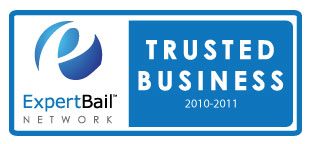How Immigration Bail Bonds Work
In the United States, citizens, non-citizens, and undocumented aliens all have rights. For example, all persons who are accused of a crime are entitled to due process. What this means is that all people are considered to be innocent until proven guilty.
This holds true regardless as to someone is accused of a state crime, federal crime or if they’re detained by ICE on suspicion of having entered the US illegally.
Data suggests that the time to process an immigration case, from start to finish, is approximately 600 days. This is a very long time for anyone to be away from their friends, family members and loved ones. People who are detained by ICE, who post immigration bonds, will be released from custody while their case is being decided.
Immigration bonds defined
Immigration bonds are similar to state and federal criminal bonds in a number of ways. For example, they are posted with the government (in this case, the bonds are posted with the US Immigration Court system) and they guarantee that if the detained person is released from custody, they’ll return to court as often as needed to finish their case.
The cost to purchase immigration bonds will be 15% of the defendant’s bail amount. Although immigration bail can, in some cases, be set as low as $1,500, these instances are rare. Today, it’s not unusual for immigration bail to be set at $25,000 or more.
It should also be noted that all immigration bonds require full collateral. For example, if bail has been set at $25,000, the person who signs for the bond will need to pay the bondsman’s fee (15%= $3,750) and they’ll need to post collateral to secure the bond. In most cases, collateral is posted in the form of real property, which means that someone will put up a house or condo to secure the bond. When the defendant’s case is over and the court exonerates the bond, the bondsman will release the collateral to the person who posted it.
What’s an exoneration?
A bond exoneration is what happens when the court releases the immigration bail bonds company from liability on the case. As long as the bond is open, the immigration bonds company is liable to cover the full $25,000 if the terms of the bond are violated. When a bond is exonerated, the bondman is no longer liable. This is why collateral is not released until immigration bonds are exonerated.
Do I Need to Hire a Bondsman?
Not necessarily.
For example, if bail is set at $20,000, the detainee’s family has two options. The first is to put up $20,000 in cash directly with ICE. As long as the detainee attends all of their mandatory hearings while their case is being decided—the money will be refunded to whomever posted it once the case is over.
Although cash bonds are certainly an option, most people opt to pay for immigration bonds, since the fee is only 15%. The biggest difference between cash and immigration bail bonds is that whereas cash bonds are refundable at the end of the case, the fee to purchase immigration bail bonds is non-refundable.
For more information on how immigration bonds work, call our office today to learn more.
Difference between immigration bonds and bail bonds
If you have a friend or loved one who has been arrested by US federal authorities, such as the Drug Enforcement Agency, the US Marshal Service, the US Customs and Border Patrol or Immigration Customs and Enforcement (ICE), you may have been told you can arrange a bond.
When you post a bond to get someone out of federal custody, you’re posting a promise with the court. This promise states that the person who’s being detained will return to court as many times as needed until their case is over. If they don’t appear in court as required, the bond will “forfeit” and the person who cosigned for the bond will be on the hook to pay the full bail amount.
At this point in time, you may be wondering if you need federal bail bond or immigration bail bonds. The answer depends on where the detainee is being held.
For example, when someone is arrested on suspicion of committing a federal crime, such as money laundering, drug trafficking or kidnapping, they’ll need to post a federal bail bond. Federal bail bonds are posted directly with the court and they often take several days to complete, from start to finish. It’s not unusual for federal criminal defendants to be in jail for 7 to 10 business days from the time they’re arrested until the day their bond is posted.
On the other hand, if the defendant was living in the US and they were arrested by ICE (and are being held at an immigration detention center), you’ll need to arrange immigration bonds. Immigration bonds are posted with ICE and they can be posted in one of two ways. First, you have the option of putting up the full bail amount, in the form of a cashier’s check that’s made out to the Department of Homeland Security. If you’re unable to put up the full amount in cash, you can call an ICE bail bonds company. The fee to purchase ICE bonds will be 15%. For example, if an immigration bond has been set at $10,000 you can expect to pay $1,500 to purchase immigration bail bonds.
(It’s also worth mentioning that if someone is arrested by the US Marshal Service (or other federal agency) because they are caught trying to enter the US without proper documentation, you’ll want to speak with a federal bail bondsman. In this case, the defendant will be transported to a federal jail while their federal criminal case is being decided.)
A second difference between federal and immigration bonds relates to the type of court that’s deciding the detainee’s case. Defendants who are released on federal bail bonds will have their cases heard in the federal criminal court system, whereas people who are released on immigration bonds will have their case decided by an immigration court judge.
If you have a loved one who is being held at an immigration detention center and you would like additional information about how immigration bonds work, call our office today to learn more.





